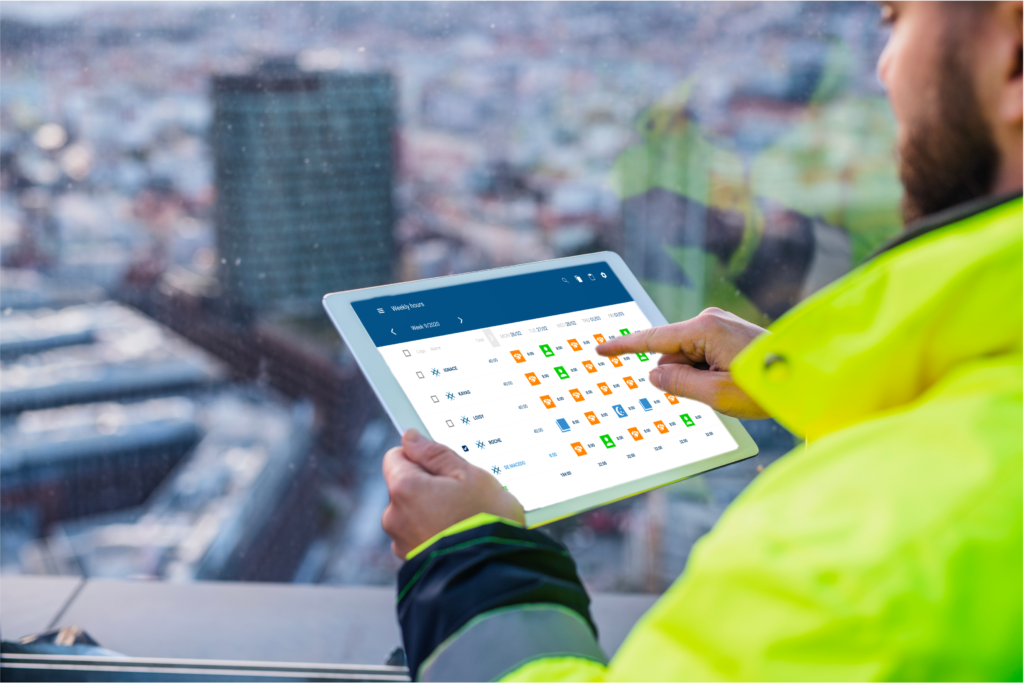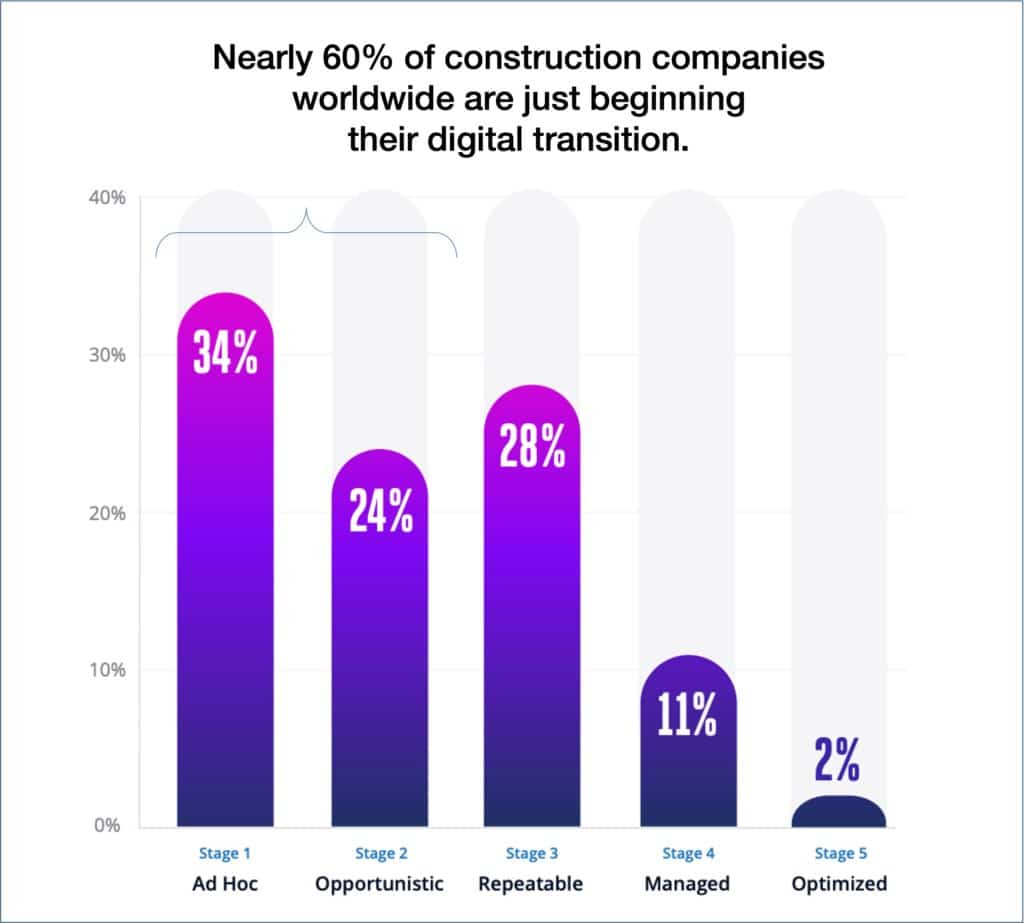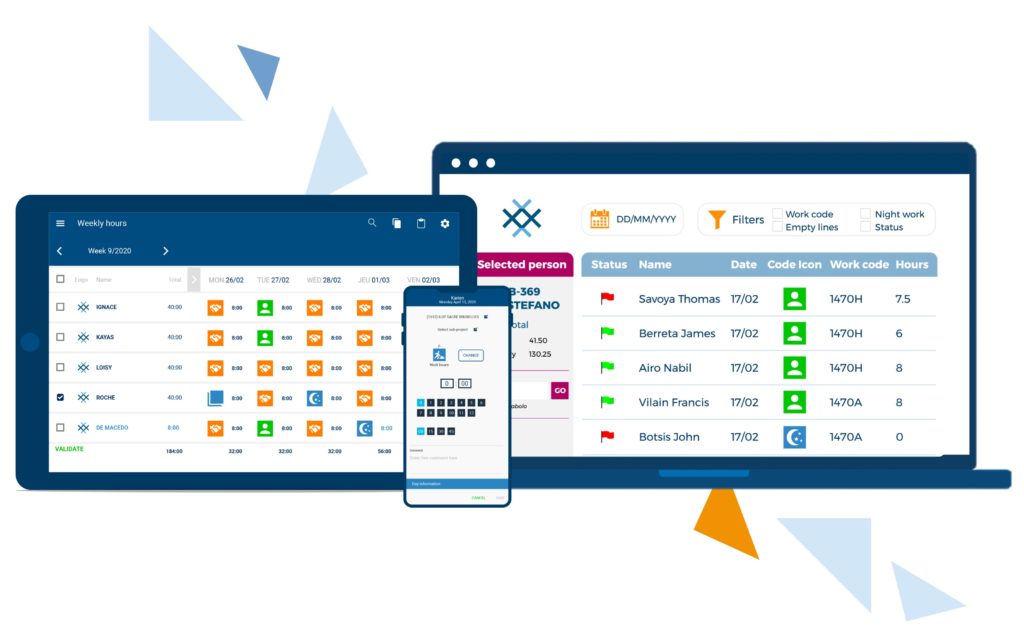
It hasn’t always been easy to find software that is suitable for the construction industry. If we go back 10 or 15 years, software designed for use in the construction sector was scarce.
The reason: the complexity of the construction industry was a barrier to software companies entering this market. The low level of digitalisation in the sector discouraged them further.
However, construction companies gradually moved towards going digital and discovered the potential of these innovative digital tools.
In response, software companies have become more interested in the sector. As a result, today there are no longer any needs that cannot be met by specialized software.
Is software for the construction industry experiencing its golden age?
Digitalisation has come late to the construction sector
If we go back in time, 10, 15 or 20 years, we can see that digital was rare in the construction and infrastructure sector.
Construction professions have been slower to adopt digital tools than manufacturing, for example.
This can be largely attributed to one thing: unlike in manufacturing, which can use a production line to reproduce the same product using an identical process, each site is unique. The construction industry therefore has a complexity which has long discouraged software companies from getting involved.
When construction companies discovered the potential of digital tools, this then translated into lots of internal developments due to a lack of provision suited to the sector.

A demand for software suited to the challenges of the construction industry
In a short time, demand for customized digital tools has soared. Those companies who invested in innovative digital technology, and then saw a significant increase in their productivity and competitiveness, have quickly been followed by their competitors.
In order to maintain their competitive advantage, companies have increasingly turned to powerful specialized technology. In response, the software market for the construction sector has experienced unprecedented growth.
This context of high competitive tension, linked to the health crisis, has cemented digitalisation as one of the new priorities, with the quest for better productivity a key objective.
Software tools have become indispensable
The expansion of the sector has been such that there is now a specialised software tool for almost every need of a construction company.
For each phase of a site, there is now at least one software tool:
- Design and architecture: Revit software from the software company Autodesk
- Planning: Primavera software, from the software company Oracle
- Electronic document management: Aconex software, from the software company Oracle
- Site monitoring: software from software companies Finalcad or Fieldwire
- Management of human and material resources: the software suite from the software company Traxxeo
The design stage, for example, was done directly by hand for a long time. Today, it is unimaginable for a person to do this stage alone without the aid of a software tool.
The same goes for scheduling tasks within a project: there is now a full range of mature and standardized solutions for the needs of the construction industry.
How to choose the right construction software?
When choosing a construction management software, what to look for? Finding the perfect digital solution can be challenging. You need to take into account not only the global software performances, but its capacity to answer your need, both actual and future.
- Finding the ideal construction management software can often be a challenging task. It seems a new solution enters the market every day. You need a tool built to meet your team’s needs, both in the present and the future. How do you know which solution is right for your projects and your firm as a whole? The best construction management software won’t ask you to settle. You won’t have to give up one feature to get another. Instead, it will check each and every box on your wishlist.
- If you’re searching for construction management software that ticks all the boxes, you’ll love this helpful guide of what to look for.
Specialization, a guarantee of quality
What differentiates these software tools from their competitors?
The answer is clear: they all come from software companies specialized in the construction industry.
Whereas a generalist software company offers a generic solution incapable of responding to the complexity of the sector, a specialized company has made the choice to focus on developing the solution most able to meet the specific needs of construction companies.
The case of Time Management Software
This can be seen particularly in the specific area of Time Management in the construction sector. Whereas generalist software companies offer solutions that are to be used from a fixed workplace, Traxxeo, a software company specialized in the construction industry, has developed a Time Management solution designed for mobility.
The difference in terms of impact is clear.
A specialized Time Management solution results in much better adoption in the field.
Furthermore, it enables optimal usage on-site whilst allowing HR and finance departments to benefit from accurate and up-to-date data, which generates a whole range of benefits for these services.
Discover the Time Management Software for the construction industry

A golden age… far from being over
Thanks to this wave of specialisation of software companies, construction companies can finally share in reaping the full rewards of digital technology.
In particular, this could lead to a construction industry that is ever more innovative and efficient. Whether this is in the area of productivity, cost reduction or even sustainability and ecology.